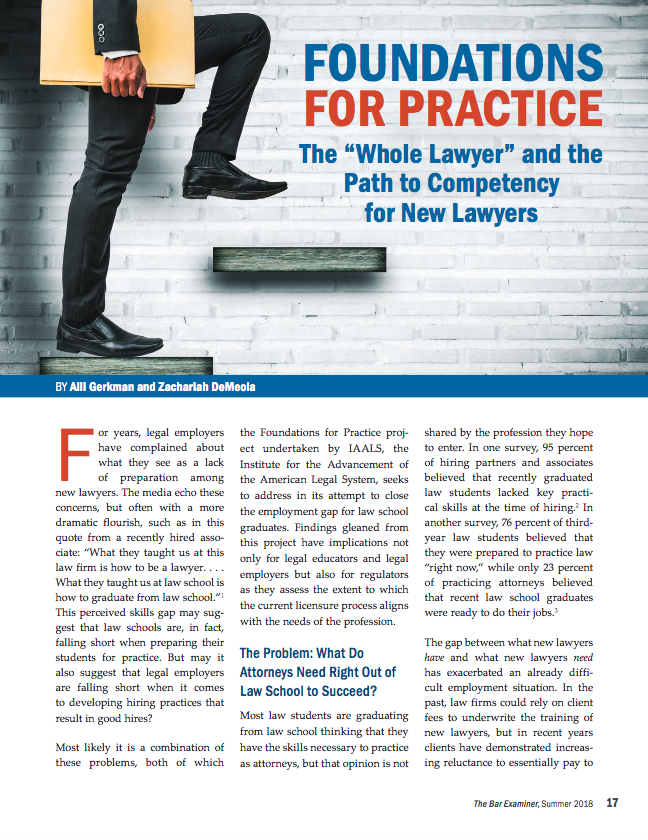Foundations for Practice, the "Whole Lawyer," and the Path to Competency for New Lawyers
 In the most recent issue of the Bar Examiner, Alli Gerkman and I discuss IAALS’ Foundations for Practice project, what it means to be a “whole lawyer,” and how we can ensure new lawyers have the skills they need to succeed in practice.
In the most recent issue of the Bar Examiner, Alli Gerkman and I discuss IAALS’ Foundations for Practice project, what it means to be a “whole lawyer,” and how we can ensure new lawyers have the skills they need to succeed in practice.
In “Foundations for Practice, the ‘Whole Lawyer’ and the Path to Competency for New Lawyers,” we discuss the perceived skills gap that affects employment for newly graduated law students, an issue that has even greater implications for the profession as a whole when new lawyers enter the workforce unprepared or underprepared. The gap between what new lawyers have and what new lawyers need may suggest that law schools are falling short when preparing their students for practice. But it may also suggest that legal employers are falling short when it comes to developing hiring practices that result in good hires, or that regulators are falling short when they assess the extent to which the current licensure process aligns with the needs of the profession.
The Foundations for Practice project surveyed more than 24,000 lawyers and identified 77 Foundations new lawyers need as they enter the profession. These foundations are the recipe for success that practicing lawyers believe new lawyers need right out of law school and include much more than intelligence and legal competency; respondents overwhelmingly indicated that new lawyers need character, too. Now that these foundations have been identified, educators, employers, and regulators can use them to close this perceived skills gap and ensure the next generation of lawyers enters the practice ready to succeed.


